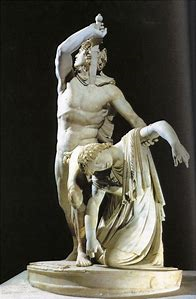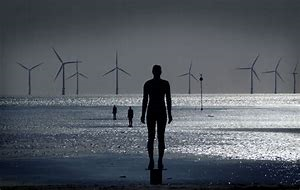 I had just finished a blog and was casting around for another subject when I saw an article on the Serena Williams implosion at the US Open in September. I had kept some cuttings on the subject but hadn’t done anything about it until I saw India Knights piece in the Sunday Times in the same month. Still doing nothing more than digging out the original cuttings I saw the incident referred to once again by Jo Konya in the Mail, Well I can take a hint and I reread the cuttings to see whether my original concerns still valid.
I had just finished a blog and was casting around for another subject when I saw an article on the Serena Williams implosion at the US Open in September. I had kept some cuttings on the subject but hadn’t done anything about it until I saw India Knights piece in the Sunday Times in the same month. Still doing nothing more than digging out the original cuttings I saw the incident referred to once again by Jo Konya in the Mail, Well I can take a hint and I reread the cuttings to see whether my original concerns still valid.
The facts behind the incidents are that in the US Open final Williams was penalised for three code violations, the first for throwing her racket to the ground; the second for receiving coaching during the match and finally for verbally abusing the referee. As the tennis correspondent of The Times reported,
“A read of the grand slam rulebook, something from which players and some pundits would benefit, showed that Ramos was undoubtedly correct n each of the three code violations that he issued…” The Times
We have to stop at this point and decide whether we agree that the rules were, in fact, broken before we enter into the furore that followed. All three offenses were caught on camera with her coach further admitting that he did coach in contravention of the rules. The argument from now on is not whether it was right that she was punished but whether the rules were equally applied. In her post match press conference Williams said, ” I can’t sit here and say I wouldn’t say he’s a thief because I thought he took a game from me. But I’ve seen other men call other umpires several things. I’m here fighting for woman’s rights and for woman’s equality and for all kinds of stuff …. ” (The Times) She went on further to say that the Umpires remark was sexist and that no man had lost a match for calling the Umpire a ‘thief’. Having pressed the gender button we may pause to note that at the time of her outburst, men had been fined 23 out of 33 fines imposed at the Open and that her fine was at the lower end of the scale (The Times). The other thing to note was that she was not penalised for just one offense but for the sum of three violations.
This cut very little ice with The American National Organisation for Women who pressed the racial as well as the sexist button. Both Sue Barker and Billie Jean King joined in with King claiming that, “when a women is emotional, she’s ‘hysterical’ and penalised for it” (The Times) This is a theme that was picked up in India Knights article in the Sunday Times. Her take was that women’s rage was considered unfeminine and out of character by a misogynistic society and therefore had to be controlled. In contrast men who had a ‘short fuse’ were somewhat admiringly regarded as being red blooded and alpha male. I wonder what world India Knight lives in where boorish and bullying behaviour is applauded?
In anyone’s world, “to threaten, with the help of a few expletive, to shove a tennis ball down the throat of Shino Tsurubuchi” (The Times) is unacceptable
This incident occurred during the 2009 US Open when Tsurubuchi called a foot fault. Two years later Williams imploded again,
“I truly despise you” Williams said to Asderaki before later expanding on her thoughts during a change of ends. “I promise you, if you ever see me walking down the Hall look the other way because you’re are out of control. You’re a hater and you’re just unattractive inside.” (The Times)
I wonder what Knight would have said if a man had made the same threats to the same female officials? Note in all of these incidents there is little discussion on the facts of the case but an immediate ‘fall to the ground’ to claim victimhood. There is some equality in the fact that Williams can sink to the level of the worst male offender but I assume that is not something that Knight and the other Williams supporters would choose to celebrate.
Mathew Syed wrote a sympathetic review of the problems that Williams has had to face to get to where she is (The Times). He describes a constant series of overt and subtle forms of racism that she suffered and applaused her championship of equality and woman’s rights. He also understands that sometimes the decisions that go against Williams can appear to be a part of the general discrimination that she has suffered on a daily basis. However, in this case he argues that sometimes, ” … heroes can cross the line in their personal conduct and can sometimes claim prejudice in specific circumstances where non exists.”

In her tirade against Ramos she said, “I have never cheated in my life. I have a daughter and I stand for what’s right for her.” What lessons should her daughter take from this particular episode? Should it be that any woman can match any man in a race to the bottom? I disagree with the view that a women’s anger is hysterical whilst angry men are admired but I suspect that society holds woman to a higher standard and that may be unfair. Should the lesson be that any unfavourable action against a woman can be attributes to sexism and victimhood? I refer to this as the ‘fall to the floor’ gambit and as Jo Konta says “I’m all for equal rights but I don’t necessarily always agree when you don’t like something, you brush it onto the inequality carpet and say because I’m a woman I didn’t get this,”(Mail Online)
I think that Serena should say to her daughter that she has had to fight hard to be where she is and sometimes all the tension and emotion overspills and she says or does something she regrets. The right thing to do is to lead by example and say that this time she was wrong and she should offer an apology to Ramos however much some of her supporters will see this as a betrayal. In the end her daughter should see the sense of fairness and compassion that was shown to Osaka at the victory ceremony when Williams asked the crowd not to boo and spoil Osaka’s day.
References: The Times, 10/09/18, Stuart Fraser, Umpire was not Sexist – Serena Broke the Rules
The Times, 10/09/18,Mathew Syed , She endured a lot but should apologise
The Sunday Times Magazine, 16/10/18, India Knight, Serena Williams, like all women, is entitled to her Rage….
Mail Online, 22/11/18, Mike Dickson, Everyone is human, including Serenahttps://www.dailymail.co.uk/sport/tennis/article-6423275/Jo-Konta-believes-Serena-Williams-wrong-accuse-umpire-sexism.html
 What are the chances that two gay couples go in to two conservative Christian Bakeries on two continents and order two cakes to be inscribed with a message supporting gay marriage? Well you probably know the answer to this but in case you don’t I will continue the tale. Predictably, the two bakeries reject the order explaining that it is against their religious principles to support gay marriage and equally predictably each gay couple take a case against the Bakeries with their respective Equality Agencies claiming discrimination. The cases go through a number of iterations with the governments funding the claimants and the Bakeries having to appeal for funding from the general public to support their defence. What do you think so far, Gay conspiracy or pure coincidence?
What are the chances that two gay couples go in to two conservative Christian Bakeries on two continents and order two cakes to be inscribed with a message supporting gay marriage? Well you probably know the answer to this but in case you don’t I will continue the tale. Predictably, the two bakeries reject the order explaining that it is against their religious principles to support gay marriage and equally predictably each gay couple take a case against the Bakeries with their respective Equality Agencies claiming discrimination. The cases go through a number of iterations with the governments funding the claimants and the Bakeries having to appeal for funding from the general public to support their defence. What do you think so far, Gay conspiracy or pure coincidence? I didn’t vote for a second term for Michael D, not because I feel that he is not qualified for the job but that he is too qualified when measured by the old time political metrics. Don’t misunderstand me, at the first election he was the only one who understood the constitutional role and limitations of the Presidency. I had hoped that his promise for a one term Presidency meant that perhaps this was the final fling of the political consensus that sent an old politician to the Aras for a nice retirement, leaving the major centrist parties free to ignore an inconvenient and expensive election. But leopards don’t change their spots, especially old ones. Once Michael D had his feet under the Presidential Desk at the Aras for seven years the prospect of unemployment seemed less inviting. Had either of the two Mary’s made this about face there would have been outrage but because it was Michael D, no one was really surprised. No one was surprised about delaying his decision to run so that opponents had to scramble to seek adoption by councils that were on holiday. No surprise either that they would have no time to build a campaign or, that he was suddenly so busy that he could only debate on his terms. This was old style and typical of the smoke filled rooms that gerrymandered politics of the past.
I didn’t vote for a second term for Michael D, not because I feel that he is not qualified for the job but that he is too qualified when measured by the old time political metrics. Don’t misunderstand me, at the first election he was the only one who understood the constitutional role and limitations of the Presidency. I had hoped that his promise for a one term Presidency meant that perhaps this was the final fling of the political consensus that sent an old politician to the Aras for a nice retirement, leaving the major centrist parties free to ignore an inconvenient and expensive election. But leopards don’t change their spots, especially old ones. Once Michael D had his feet under the Presidential Desk at the Aras for seven years the prospect of unemployment seemed less inviting. Had either of the two Mary’s made this about face there would have been outrage but because it was Michael D, no one was really surprised. No one was surprised about delaying his decision to run so that opponents had to scramble to seek adoption by councils that were on holiday. No surprise either that they would have no time to build a campaign or, that he was suddenly so busy that he could only debate on his terms. This was old style and typical of the smoke filled rooms that gerrymandered politics of the past. I would think that it is fairly rare that one day after the implementation date of a new Act that headlines such as ‘Drink Driving Laws too Weak’ would appear(The Times 27/10/18) . However, this is the Act that Minister Ross introduced to appease public pressure to do something about the mess that are the RTA’s and their policing. It was also a Bill that was heavily criticised, not for the proposed penalties but for any realistic attempt to reform the rickety structure that governs enforcement of the Road Traffic Acts in Ireland. I wrote an essay on the subject in July, using data mainly drawn from an RTE program and the basic issues that were raised were not addressed in any serious way
I would think that it is fairly rare that one day after the implementation date of a new Act that headlines such as ‘Drink Driving Laws too Weak’ would appear(The Times 27/10/18) . However, this is the Act that Minister Ross introduced to appease public pressure to do something about the mess that are the RTA’s and their policing. It was also a Bill that was heavily criticised, not for the proposed penalties but for any realistic attempt to reform the rickety structure that governs enforcement of the Road Traffic Acts in Ireland. I wrote an essay on the subject in July, using data mainly drawn from an RTE program and the basic issues that were raised were not addressed in any serious way 






